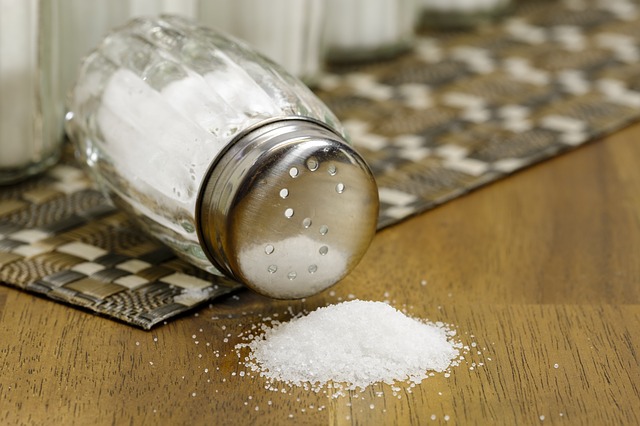
May is Blood Pressure Awareness Month. This is part of the Cardiometabolic Health series. Cardiometabolic conditions are high blood pressure (hypertension), heart disease, prediabetes or diabetes, abnormal cholesterol, and truncal obesity. Did you know that 75 million Americans who have hypertension, almost half are not controlled. 11 million are unaware they have hypertension and are not receiving treatment to control it. These individuals do have health insurance and have a primary care provider they see regularly. So you would think they have no excuse in getting their blood pressure controlled. But a wise doctor told me many years ago, if chronic disease hurt, people would pay more attention to it. That is the problem with hypertension. You can walk around and do your normal activities and not feel sick or any other problems, until all of a sudden, BAM! You are struck with a heart attack or stroke.
This article’s focus is salt sensitivity. Some people are extremely sensitive to salt, especially some ethnic groups. The salt leads to retaining fluid which leads to swelling and increases blood volume. That increased volume increases blood pressure and causes the heart to work harder to pump that excess fluid through the body. That increased exertion by the heart over time can cause the heart to fail. So the goal of therapy for controlling blood pressure is to prevent these avoidable complications. One way to prevent excess fluid is to avoid too much salt in the diet. Highly processed foods such as shelf-stable packaged or frozen dinners, junk food or snacks such as chips, crackers contain large amounts of salt. Highly processed foods need to be avoided as much as possible. Also fast food contains large amounts of salt. Sugar-sweetened beverages like sodas and other beverages contain increased amounts of sodium (salt). The current recommendation is to limit sodium in the diet to 2300 mg per day. A good rule of thumb is to follow the DASH (Dietary Approaches to Stop Hypertension)diet or the Mediterranean diet. These examples have sample menus attached so you can get started on a plan that controls your salt intake, lowers your blood pressure and decreases your risk of developing preventable complications. As a cook, I recommend using coarse sea salt or Himalayan coarse salt instead of regular iodized table salt. Using the coarse salt,you use less but are able to get intense flavor with small amounts.
So put that salt shaker down! There are other seasonings and flavors you can use to make your food taste good with adding extra salt. Click here to get a free guide regarding salt in the diet and tips to limit it.
It is important to bring the blood pressure under control to prevent complications such as heart failure and chronic kidney disease. To learn more about blood pressure and other cardiometabolic conditions visit my Facebook page, Cardiometabolic Conditions.


Recent Comments